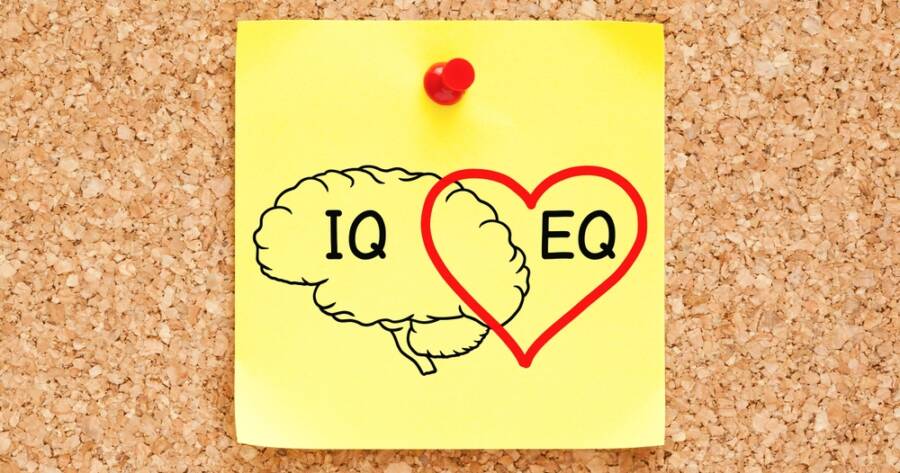Emotional intelligence (EQ) is often the hidden factor that separates successful professionals from their peers. While technical skills are crucial, the ability to understand, manage, and effectively use emotions can greatly influence your career trajectory. EQ helps you navigate workplace dynamics, build stronger relationships, and handle stress with resilience. By enhancing your emotional intelligence, you can unlock new opportunities, improve communication, and ultimately set yourself up for long-term career success and growth.
What is Emotional Intelligence (EQ)?
Emotional intelligence refers to the ability to recognize, understand, manage, and influence your own emotions, as well as the emotions of others. It involves self-awareness, self-regulation, motivation, empathy, and social skills.
Unlike IQ, which measures cognitive abilities, EQ focuses on emotional and social competencies. People with high emotional intelligence can navigate social complexities, resolve conflicts, and maintain positive relationships at work.
Essentially, EQ encompasses the emotional and interpersonal skills that help individuals thrive in personal and professional settings. It enables better communication, collaboration, and leadership, which are key traits for career growth and success.
How Do You Know If You Have Emotional Intelligence?
Identifying emotional intelligence in yourself begins with self-reflection. High EQ individuals tend to be aware of their emotions and how they affect their behavior. If you can easily identify your emotional triggers and manage them effectively, that’s a good sign.
Additionally, if you tend to show empathy toward others, listen actively, and maintain positive relationships despite challenges, your EQ may be high. People with strong EQ are typically calm under pressure, adaptable, and open to feedback.
If you find it easy to manage interpersonal conflicts and collaborate with others, you’re likely practicing emotional intelligence in your daily life. You can also seek feedback from trusted colleagues to gauge your emotional awareness and social interactions.
How Emotional Intelligence Can Help Your Career
Emotional intelligence is a powerful tool for career advancement. In the workplace, it helps you understand and manage your own emotions while effectively responding to the emotions of others. This skill is critical for leadership, as it fosters trust, improves team dynamics, and enables better decision-making.
High EQ individuals excel at building strong, lasting relationships with colleagues, superiors, and clients, which is vital for networking and career growth. EQ also supports conflict resolution, allowing you to navigate workplace challenges calmly and constructively. People with high emotional intelligence tend to have better stress management, communication, and collaboration skills, all of which can accelerate professional success and open doors for leadership opportunities.
How to Practice and Improve Emotional Intelligence
Improving emotional intelligence starts with self-awareness. Regular self-reflection, such as journaling or meditating, can help you understand your emotions and how they influence your behavior. Another key step is learning to manage your emotions—this involves recognizing when you’re upset or stressed and practicing techniques like deep breathing or pausing before reacting.
Enhancing empathy is another essential practice, which can be achieved by actively listening and trying to understand others’ perspectives. To improve social skills, focus on effective communication, collaboration, and conflict resolution. Additionally, seek feedback from colleagues or mentors and work on being open to constructive criticism. Like any skill, emotional intelligence improves with consistent practice and commitment.
The Long-Term Benefits of High Emotional Intelligence
In the long run, cultivating emotional intelligence can lead to better career outcomes, improved job satisfaction, and stronger personal relationships. As you develop EQ, you’ll be better equipped to manage challenges, lead teams, and make thoughtful decisions. People with high emotional intelligence tend to have higher emotional resilience, which helps them recover from setbacks and adapt to change more effectively.
Additionally, EQ promotes greater workplace harmony, as individuals with high emotional intelligence can navigate office politics, reduce tensions, and encourage positive communication. As you hone your EQ, it will not only help you advance in your career but also improve your overall well-being, leading to a more fulfilling and successful life both professionally and personally.
Unlocking Career Success Through Emotional Intelligence
Emotional intelligence is a key factor in navigating today’s competitive job market and building a successful career. By developing your EQ, you enhance your ability to connect with others, manage challenges, and lead with empathy.
Whether you’re looking to climb the corporate ladder or improve your workplace relationships, emotional intelligence is a skill that can set you apart. Commit to growing your EQ, and you’ll find yourself not only advancing in your career but also thriving in all aspects of life.

